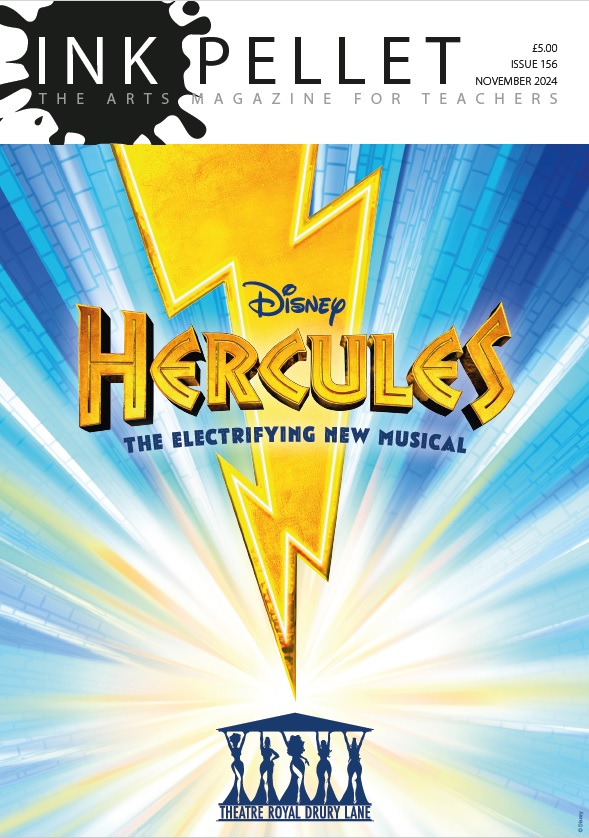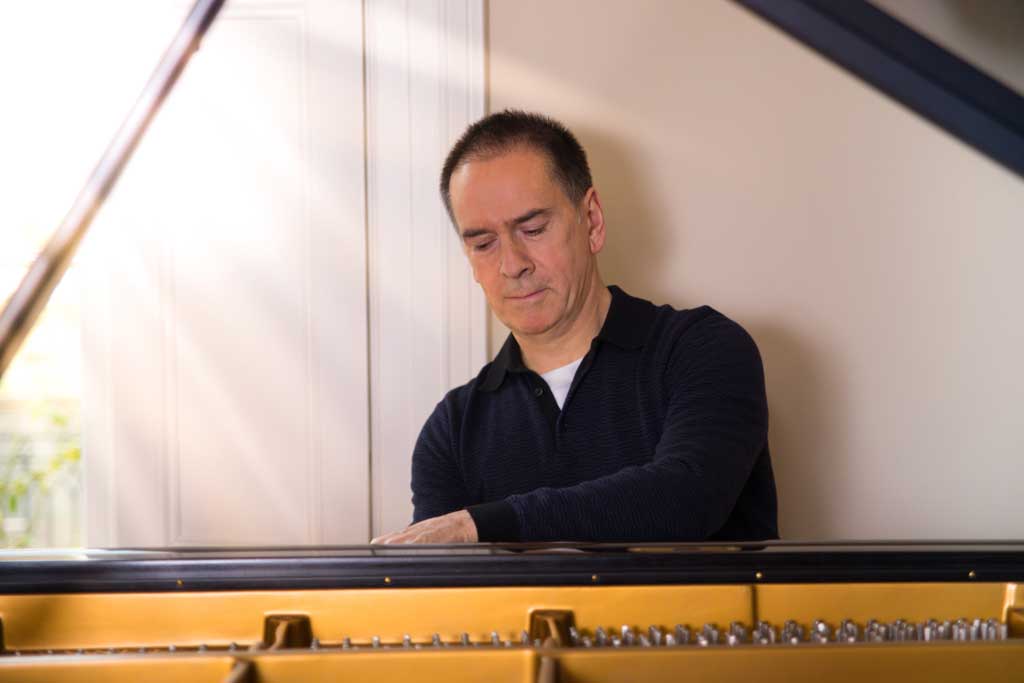Paul Fincham is a composer whose carol Ring The Bells will be sung in concerts all over the country this Christmas and whose opera The Happy Princess got good reviews last summer. Susan Elkin meets him.
Paul Finchham smashes every stereotype about impoverished composers hunched in cold garrets wondering where the next meal is coming from. We meet in his elegant, spacious Islington town house drinking tea in his delightfully spare but extended and generously proportioned basement kitchen diner looking out on the pretty rear garden. He uses the entire ground floor space upstairs as a work area with grand piano, big computer, screen and the like. “I can use this as a recording studio too” he tells me cheerfully, inviting me to a piano recital in his house on a later date which I accept with alacrity.
For Paul, 60, – who is as contemptuous of the idea of retiring as I am – composing is a second career. Having trained as a lawyer, he worked for many years in corporate finance. “I went to prep school in Bromley because the family home was in Beckenham and then to Tonbridge School. After that I read music at Cambridge” he says directing me to his ground floor loo where there’s a very evocative poster advertising a Cambridge Footlights pantomime, written by Paul with Emma Thompson and Hugh Laurie in the cast.
So what made him abandon music when he graduated? “I didn’t want to be poor!” he says with simple honesty and an engaging grin. Of course, he didn’t really abandon it anyway – real musicians never do. “I’ve sung with the London Philharmonic Choir for over thirty years” Paul tells me, and it was for them he wrote Ring The Bells which premiered in the Royal Albert Hall last Christmas. He then shows me the list of the fifty or so choirs who will be singing it this Christmas now that it’s published by Boosey and Hawkes. “It’s in its fourth reprint” he says happily. “Interest in it is growing exponentially”.
Paul is also delighted that the genesis of Ring The Bells was tied up with the charity, Crisis, to which he has pledged all the composer royalty rights. “So, I’m really pleased that the charity is doing well out of its success because it’s a very good cause to support” Paul says. It may be too late for this Christmas by the time you read this, but Paul would love to hear from any choir which would like to perform it at Christmas 2020. There are learning tracks on his website so that individuals who sing in choirs but don’t read music can learn their parts at home before rehearsals.
Meanwhile, a few years ago Paul also met his old Tonbridge English Teacher Jonathan Smith casually at a lunch. Smith has written several novels, including Summer in February which became a film starring Dan Stevens, another Tonbridgian – and Paul isn’t the first person I’ve met who sings the praises of the inspirational Jonathan Smith, whom I met once when he was still teaching at Tonbridge.
That meeting led to Paul’s being invited to write the score for Summer in February, on the strength of which he went part-time in his day job. In the end, his music wasn’t used but it got him an agent and more film jobs including a commission to write the music for A Reason to Leave (2016), a film which won awards.
Soon afterwards Paul was introduced to some of the staff at Garsington Opera at Wormsley, an Oxfordshire company which, each summer, presents a short season of professional opera in a pavilion on the Getty estate next to the famous cricket ground. The company also does outreach/education work and every two years commissions and stages a large-scale work for performance by community actors and singers, including local primary schools, working alongside a small group of professionals.
“I met writer, Jessica Duchen, who has written for Garsington before” says Paul. “Jess had a very strong idea for a radical reworking of Oscar Wilde’s The Happy Prince story, predicated on a feisty princess. I think she’s been wanting to write it for a long time. Together we pitched it.”
After that it all fell into place. “My last day in the office was 31 May, 2018. I signed the contract for The Happy Princess the day before. So I knew I really was moving on to a new career”, remembers Paul with a big smile. He looks back and chuckles that the original concept was for a twenty-minute piece. In the end it ran for over an hour. “Of course, I hadn’t done anything like that before. It was a question of say ‘yes’ and then think about it afterwards” he says.
The Happy Princess was very successful. I saw and reviewed it favourably. The quasi-feminist take on the story is fresh and thoughtful and Paul’s music, scored for an eight piece band, is very accessible. Toby Purser, musical director of London Philharmonic Choir who commissioned and conducted the premiere of Ring The Bells refers (on YouTube) to the “ear worm quality” of Paul’s music and that’s true of The Happy Princess too.
But it had only a single performance and Paul is now working very hard to try and get it done elsewhere. He has a list of schools, youth musical theatre groups and opera companies he’s in the process of contacting and I make a few more suggestions which he has followed up since. The Happy Princess needs a couple of professionals and a competent band to hold it together. Otherwise it features various ensemble groups some of whom can be very young. There are parts for young solo singers too and it’s an ideal vehicle for getting large numbers involved.
“At present it isn’t commercially published”, says Paul, “but I can create copies for anyone interested in staging The Happy Princess which is not expensive to produce.” Several people and organisations have expressed serious interest.
I ask Paul how he works when he’s composing, whereupon he sits down at his impressive grand piano and plays me a few bars. Piano has always been his main instrument. “I usually start with a simple catchy idea. Sometimes it will come when I’m at the keyboard. Or it might simply be in my head. Then eventually I create the notation on the computer.”
So what next? “Well, I’m in the fortunate position that unless I do something utterly stupid, I don’t have to compose in order to eat” he says. “So I’m determined that I’m not going to fall into the trap of churning stuff out just for the sake of it. In time I’d like to write more for choirs and I’d love to do more film music – maybe sometimes combining the two. It’s interesting: choirs aren’t the norm for films, but a choral element can be a real atmospheric enhancement especially in horror films.”
“I’m happy to go where the future takes me, really” he says. “Ideally, of course, I’d like another commission, but if not, I might write a song cycle next. And – or – perhaps another carol but it will have to wait until I get a really good idea”.
And with that, this pleasant, hospitable man leads me from his beautiful home to a busy Islington café up the road. He has offered me lunch and we both enjoy kimchi scrambled eggs on toast with avocado. A journalist’s life can be very congenial sometimes.
Paul Fincham, composer: www.paulfinchham.com




No Comments
No comments yet.
Sorry, the comment form is closed at this time.